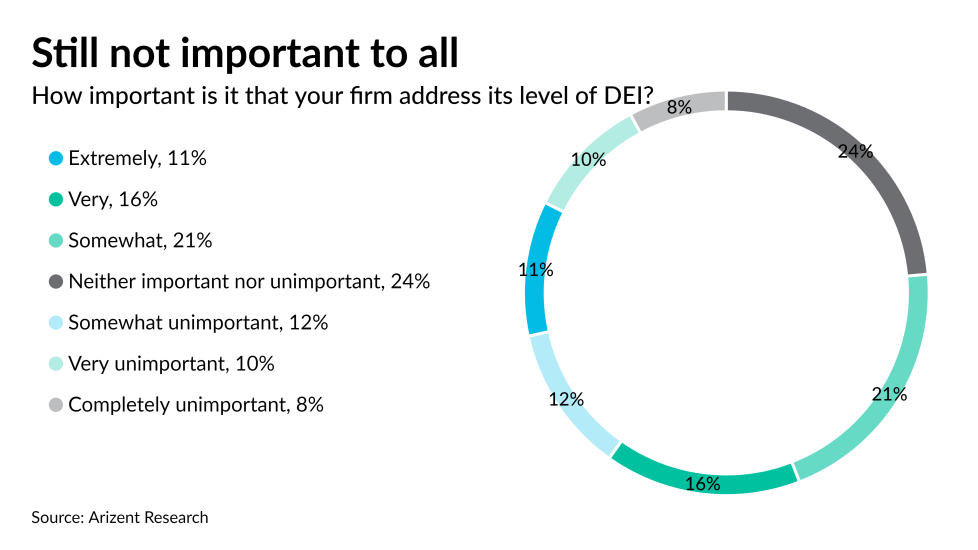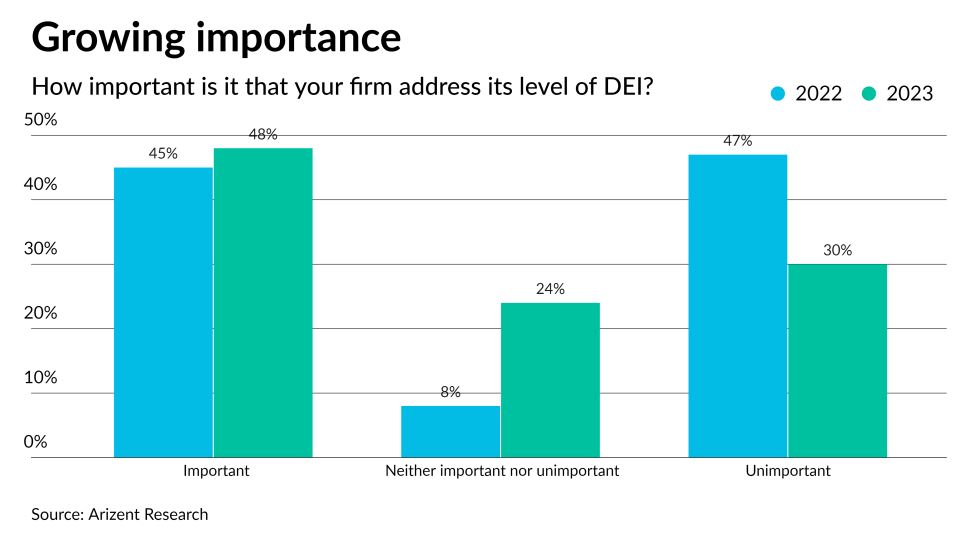The accounting profession is suffering from serious talent shortages, caused by both a slowing pipeline of entry-level accountants and the ongoing leakage of experienced professionals to other industries or to retirement. And yet firms remain slow to grasp the value of diversity, equity and inclusion initiatives for tapping new sources of talent and boosting retention rates.
For instance, less than half of respondents to a recent survey conducted by Accounting Today and Arizent Research think it's important for their firm to evaluate its progress on DEI. (The survey was part of a wider research effort involving a number of finance and related industries; you can see
Nonetheless, there are some signs of improvement, and a number of initiatives that firms are taking to boost DEI specifically, and to make their workplaces less toxic, as you can see in the data points below.














